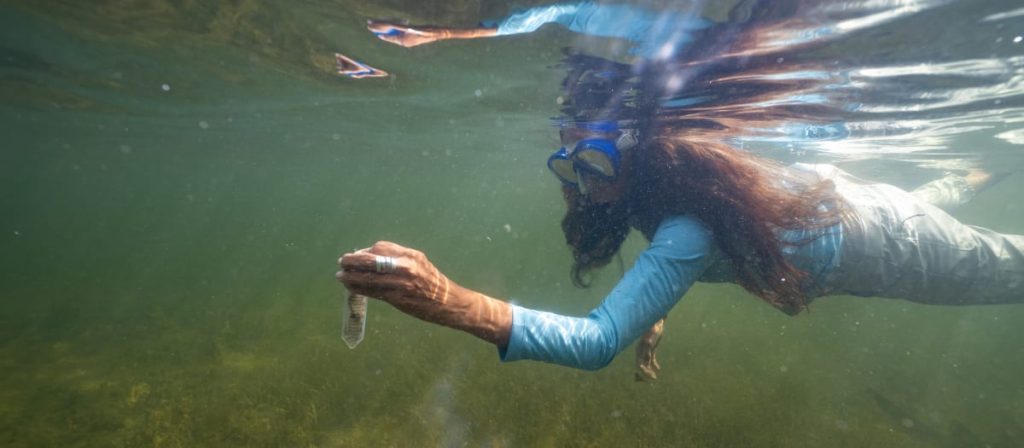Originally published on December 18, 2023 on news.fiu.edu.
Written by JoAnn Adkins
The Marathon City Council says it will end the use of shallow sewage wells, a move that could drastically reduce the pervasive pharmaceutical contamination in local fish populations uncovered by FIU scientists.
The announcement was made following a settlement with the citizen-based group Friends of the Lower Keys, which filed a lawsuit against the city in 2022 for alleged violations of the federal Clean Water Act and Endangered Species Act. Earlier this year, the city council agreed to a series of steps to resolve the wastewater issues outlined in the lawsuit and the settlement terms were approved by a unanimous vote of the council earlier this week. Multiple research studies have been conducted in recent years, including those by FIU and other universities, which have concluded the existing shallow wells are releasing nutrients and other contaminants to surface water in the Florida Keys.
Among the findings, FIU Earth and Environment Professor Jennifer Rehage identified pharmaceutical contaminants in local fish that included blood pressure medications, antidepressants, prostate treatment medications, antibiotics, and pain relievers. Researchers also found pharmaceuticals in fish prey — crabs, shrimp and other fish — suggesting that many of Florida’s valuable fisheries are exposed to these contaminants. The study, which was conducted in collaboration with Bonefish & Tarpon Trust, found an average of seven pharmaceuticals in the fish they sampled, though one tested positive for 17 different medications. Marathon’s City Council outlined a timeline to replace the shallow sewage wells with a completion date of 2028. The new deep well will be sited at least 3,000 feet deep and into the boulder zone.
“This is a monumental achievement by a group of local volunteers,” said Rehage, whose research is a core component of the comprehensive water quality work being conducted by the team of researchers in FIU’s Institute of Environment. “Those local waters are the nurseries for our fisheries, and a deep well is definitely going to help protect them.”
Approximately 5 billion prescriptions are filled each year in the U.S., yet there are no environmental regulations for the disposal of pharmaceuticals worldwide. Pharmaceutical contaminants originate most often from human wastewater and are not sufficiently removed by conventional water treatment. They remain active at low doses, can be released constantly, and exposure can affect all aspects of fish behavior, with negative consequences for their reproduction and survival. Pharmaceutical contaminants have been shown to affect all aspects of the life of fish, including their feeding, activity, sociability, and migratory behavior.
“It was incredibly meaningful to put our pharmaceutical data to do good for keys water quality,” Rehage said.

